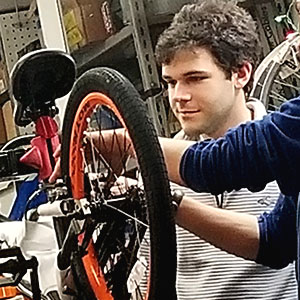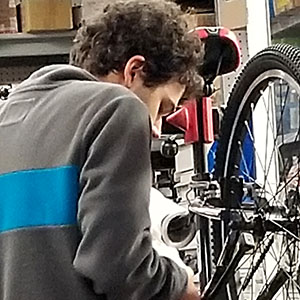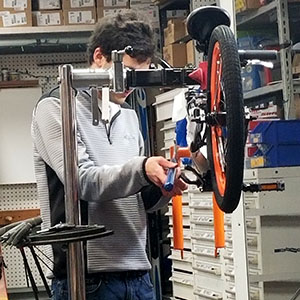Council-Sponsored Grant Activities: Employment (2019)
The Discovery Process serves as a person centered planning tool, a strategy for learning about a person's interests and talents, and the skills that he/she would bring to the workplace. Each person's school, volunteer, and past work experiences are important in identifying vocational themes to create a match between a field of work and the job seeker's areas of interest. This is a process that builds on personal strengths and abilities and, through informational interviews, offers the opportunity to learn what a specific job before deciding if a match would be a good one.
In 2018, twelve adults found employment through the discovery process in jobs of their choosing. They worked between eight and 23 hours per week, earning between $ 9.65 and $ 15.00 per hour. Four transition students found competitive jobs, one student had a paid work experience while he was in school, five students worked through a modified discovery process, and four students completed postsecondary education classes.
2019 Project Year and Success Stories:

Precious, employed at Red Lobster
Precious is a team player. She enjoys working with others on the job and likes to keep busy. At Red Lobster, she's a second dishwasher, assisting the primary dishwasher in getting dishes, pots and pans ready.


Nick, employed at Valley Bike and Ski

Nick is interested in learning how things work – and he learns by taking things apart and then reassembling everything in the right order. As a shop assistant, a co-worker is teaching Nick to assemble and repair bikes in a calm environment, a condition of employment. He enjoys the repetition, the opportunity to learn about the workings of many different types of bikes, and the challenge of developing and perfecting his skills for assembling and repairing a broad range of bikes.

Shelby, employed at Cub Foods
Shelby started a new job at the beginning of the new year in January, working as a dairy department sales associate at Cub Foods. He's detail oriented, keeps a set list of job responsibilities, and much prefers to work independently – a great match for keeping the shelves stocked with daily products and not requiring a lot of communication with customers. He's free to seek out co-workers with questions and is definitely part of a team but not overwhelmed with feeling he needs to engage in a lot of conversation with a lot of different people. He's enjoying steady and far less stressful employment now compared with a seasonal job he had previously with more demands on regularly connecting with customers and co-workers.

Robert, employed at East Side Neighborhood Services
Robert had been doing volunteer work as a window washer. He wanted to start out in a paid position doing a job that used a skill that he had and was comfortable performing. At East Side Neighborhood Services, he's cleaning windows but also doing other janitorial tasks, and will be learning additional cleaning tasks with the support of his employer.
View 2018 Employment Grant Activities »
View 2017 Employment Grant Activities »
View 2016 Employment Grant Activities »
View 2015 Employment Grant Activities »
View 2014 Employment Grant Activities »
View 2013 Employment Grant Activities »




